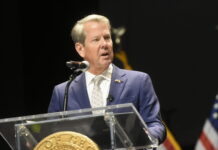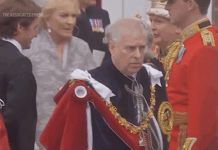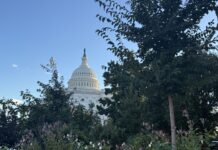
(GA Recorder) — A powerful sports betting and gambling company is intensifying its efforts to win legalized sports betting, casinos and horse racing in Georgia.
Representatives from the Entain Foundation U.S. met with several state legislators in Atlanta on Tuesday to hatch a plan to pass a gambling bill in 2024. In the last couple of years, Georgia’s legislative sessions have ended with failed attempts to legalize sports betting, horse racing, and casinos in combination or as standalone propositions as legislators were divided on everything from the ills of gambling addiction to how revenue would be distributed, and what forms of gambling to permit.
Entain trustee Bill Pascrell, a partner at PPAG, one of the larger lobbying firms in the country, said several Georgia legislators asked for assistance to push Georgia to join several dozen other states that legalize retail and online sports betting and other types of sanctioned wagering.
Entain is an international gambling corporation and co-owner with Las Vegas-based MGM Resorts of online sportsbook BetMGM.
”Georgia, as you can imagine, has politically a lot of issues including the Trump indictment, so there’s a little bit of a distraction at the moment but I feel pretty positive Georgia is going to move (betting) on next year along with a few other states,” Pascrell said.
Martin Lycka, senior vice president for American Regulatory Affairs and Responsible Gambling at Entain, said Georgia would greatly benefit not only from tax revenue made from gambling but also from companies spending money on marketing and other areas that will also trickle down into local communities.
“The other one relates to consumer protection legislation in order to clamp down on any black market,” Lycka said. “Let’s not fool ourselves into believing that Georgians would not be betting at the moment.”
During the 2023 legislative session, a variety of sports betting bills failed to make it out of either chamber, from online wagering to voting on-site at licensed locations and other events via kiosks to a push to open up several horse race tracks.
The odds-on favorite among state lawmakers is for online and retail sport betting, while there are significant disagreements between the public and legislators regarding the legalization of horse racing pari-mutuel betting and casinos.
This year added another wrinkle as some gambling legislation relied on an opinion from former Georgia Supreme Court Chief Justice Harold Melton that a statewide ballot referendum is not necessary if gambling is handled by the Georgia Lottery.
And how to split the purse continues to spark debate over how the sales tax revenue and other gaming fees collected will be allocated. A consensus seemed to form among state lawmakers debating recent proposals that the majority of revenue should be used for the same purpose as the state lottery-funded HOPE Scholarship and Pre-K programs. Some disagreement lingers about whether a portion of that funding should be dedicated specifically to needs-based scholarships.
A major roadblock to legalized sports betting in Georgia is an effort led by the Georgia Baptist Mission Board, which harbors concerns about the harms of gambling addiction. The board’s lobbyist Mike Griffin, agreed on Tuesday that there is a good chance that sports gambling will be brought up during the next legislative session.
Griffin also pushed back on the economic benefits of gambling, citing studies that say the additional revenue doesn’t offset the extra government resources legal wagering costs taxpayers
“Sports gambling is one of the most dangerous forms of gambling because of its easy accessibility and its ability to create addiction,” Griffin said in an email. “While I know it is being said that many are already doing this kind of gambling anyway, we must understand that just because somebody is doing something illegal does not mean that it should be made legal.”
“Something as detrimental as sports gambling made legal will be like putting gasoline on a fire. It will make something that is already bad, just worse,” Griffin said.
Entain is also promoting gaming in Georgia as a way to make it easier to identify if someone has a gambling addiction than if they’re placing wagers through unregulated channels like offshore sporting books and casinos, said Pascrell.
“If you don’t regulate it, you can’t track it, you can’t monitor it,” Pascrell said. “And unlike alcohol and drug use, it’s really not readily apparent whether somebody’s having a gambling addiction problem. The only way to penetrate and have an impact on problem gambling in a particular jurisdiction is to regulate it.”
Gambling options in Georgia’s neighboring states vary greatly.
Alabama is only one border state that does not sell lottery tickets and its only state-regulated gaming option is bingo halls in some of the most impoverished areas. Alabama is home to a few casinos operated by federally recognized tribes. After two years of legalized sports betting in Florida, the U.S. Supreme Court on Friday put a temporary hold on it. But Florida also holds a state lottery, as tribe-operated casinos and pari-mutuel betting options are available across the state.
Neighboring Tennessee already reaps economic benefits from sports gaming, which it legalized soon after the U.S. Supreme Court cleared the way for online wagering in a 2018 ruling.
The Tennessee Education Lottery reports that $73.7 million in tax revenue has been generated since online-only sports betting was legalized in November 2020.






